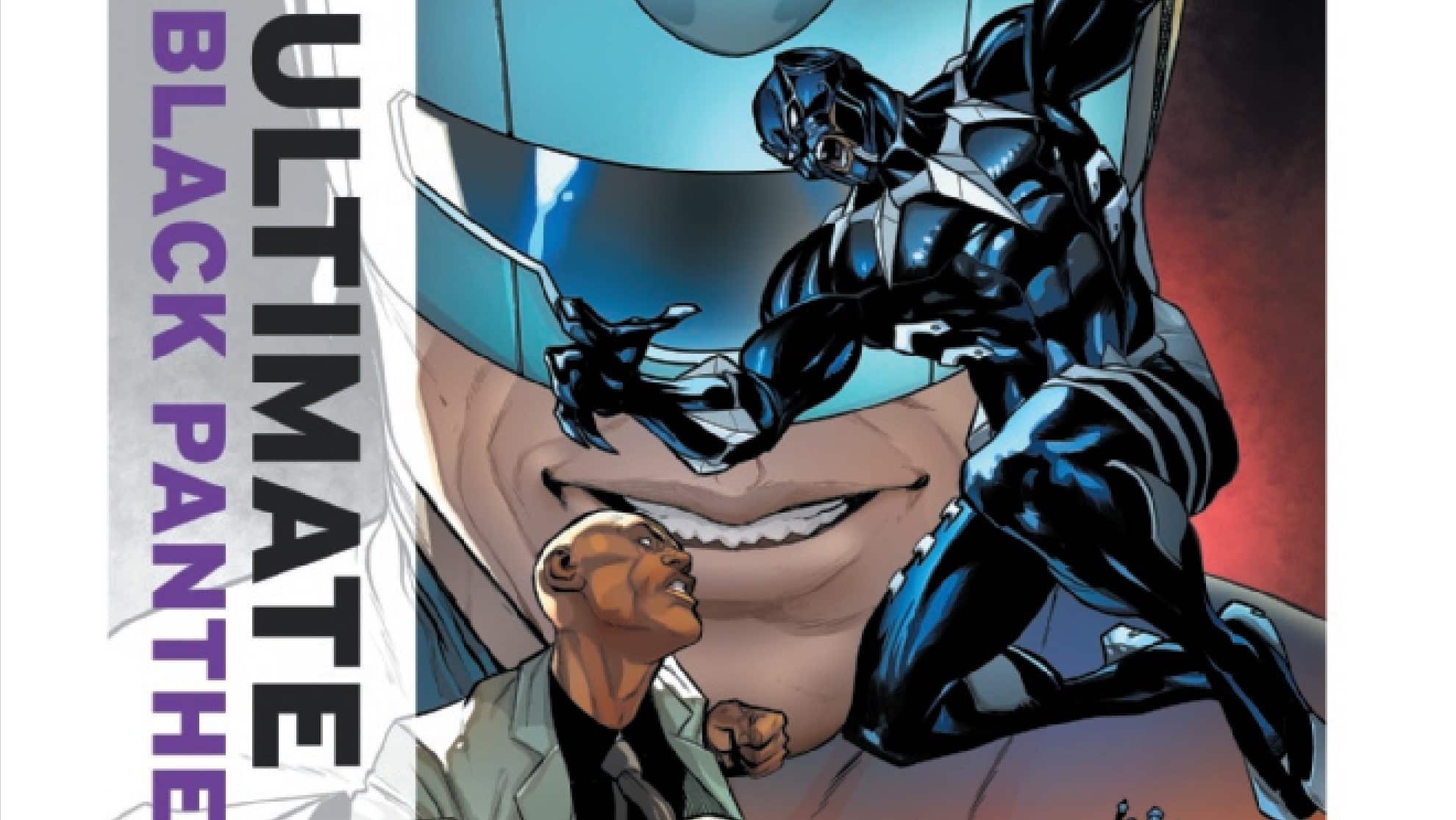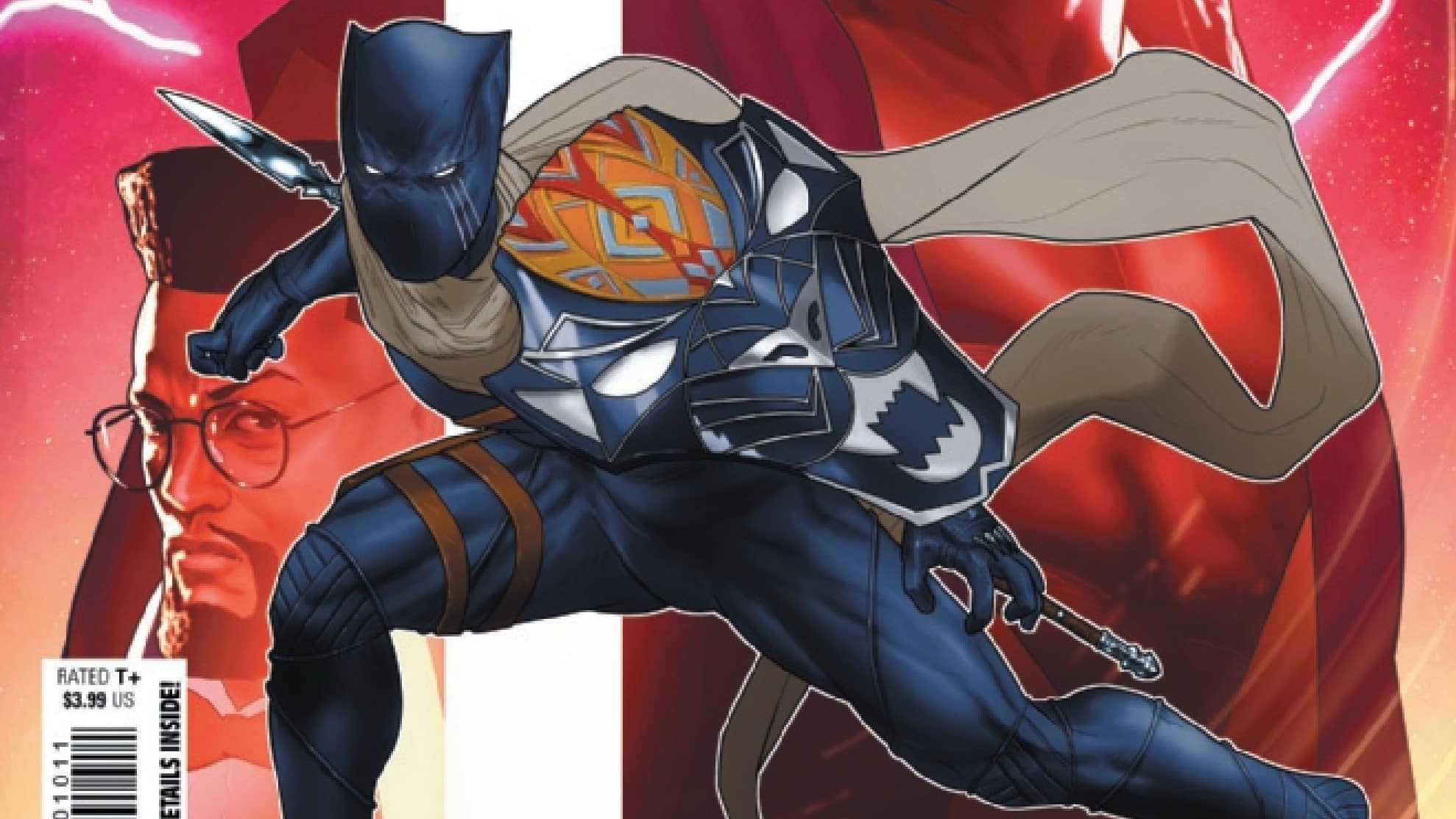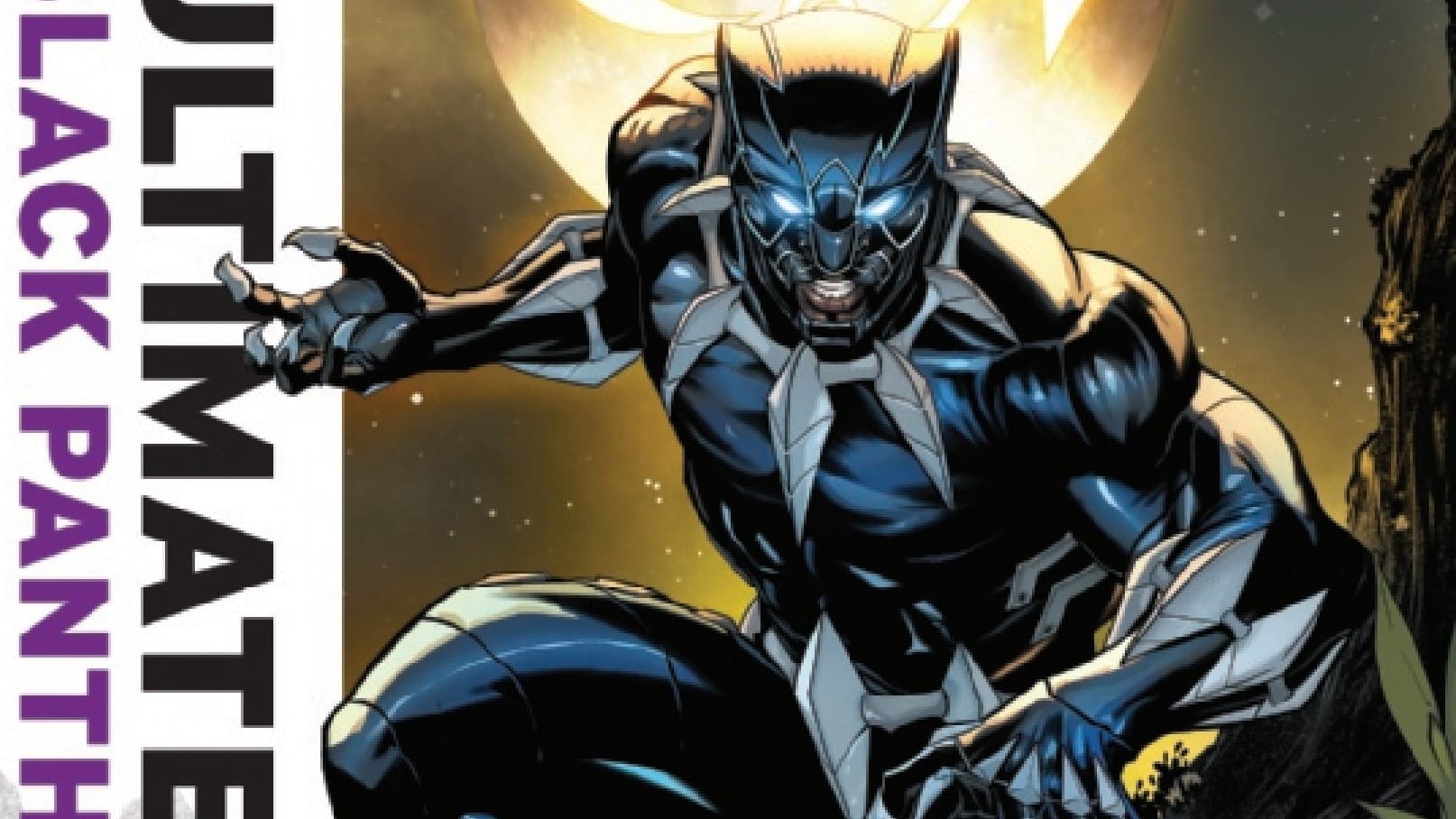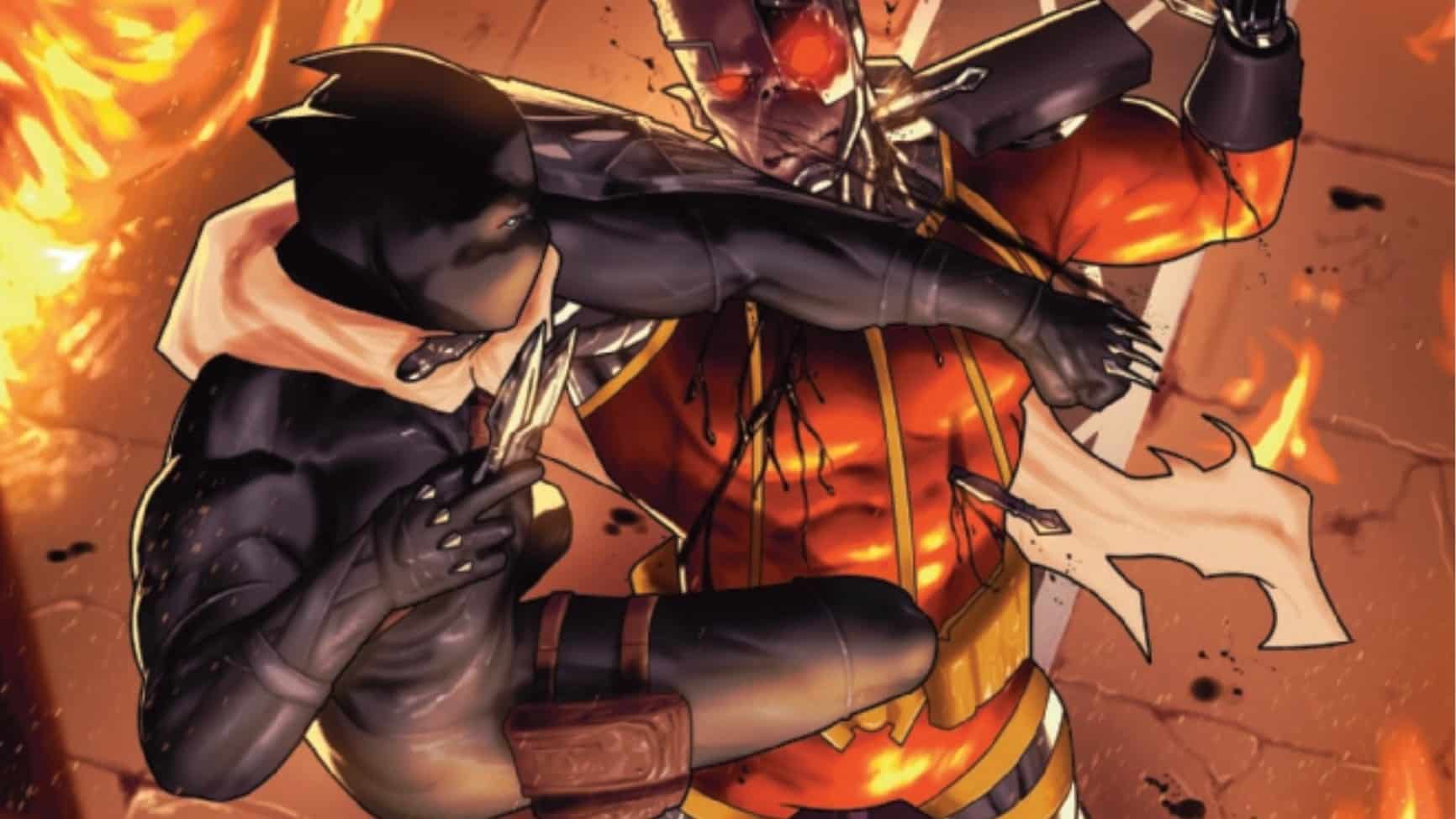After Moon Knight’s forces attack the stronghold of Wakanda, T’Challa can no longer resist Shuri and the Dora Milaje’s calls to action. Grieving and enraged, Black Panther demands to know who has been leaking information about Wakanda to their enemy, and the source shocks him to his core. Ultimate Black Panther #2 is written by Bryan Edward Hill, drawn by Stefano Caselli, colored by David Curiel and lettered by Cory Petit.
If you’re reading this, you’re probably looking to see whether Ultimate Black Panther #2 is good or bad. That’s what reviews are for, after all. Well, sorry to say, this isn’t the place for that.
Not today.
Rather, a more salient question about this book, and the series, and the whole Ultimate Universe must be asked:
What’s the point? What’s the purpose?
Is this meant to be an addenda, digression of the main universe that will eventually re-wrap itself in familiar clothing, or is this a permanent, long-term commitment to new stories?
And of those stories?
Are they, like Ultimate Spider-Man, supposed to be Ultimate Fan-Service, as Peter has a living uncle, a wife and family, and his powers? Are they meant to be avant-garde, and unique (for Marvel), like the (excellent!) manga-lite, manga-like Ultimate X-Men?
Or are we merely to make due with a mild re-skinning of well-known lore, tweaked to be sure, but familiar as to be almost indistinguishable from the source material?
I’m not sure.
And because I’m not sure, because I don’t exactly know the purpose, I can’t really judge whether Ultimate Black Panther, both an efficient, well-drawn, interesting comic and a disappointingly derivative missed opportunity to do something truly revolutionary, is good.
It is, at least, interesting.

T’Challa, upon witnessing his father’s death, has become a bit of a despot: jailing possible dissidents, conducting raids, using an iron fist to hopefully root out whoever betrayed his kingdom. Aside from being more than a bit reminiscent of John Ridley’s run (where a mildly megalomaniacal T’Challa sets up sleeper cells of spies all over the world to keep him abreast of possible insurrections), this kind of overreach opens up massive storytelling possibilities: Is he no longer benevolent? Was he ever? Does he have to do this, or does he enjoy it? How do the people react, outside of fear? Who is pushing back on or encouraging his impulses? For what/whose gain?
Unfortunately, none of those questions are asked, and we dismiss this discomforting — but extremely interesting — premise almost immediately.
The conflicts here, forming the crux of this book, center on personal relationships: who T’Challa should and should not, can and cannot trust. Someone is betraying the location of vibranium mines (and apparently the location of his cloaked ship) to the Moon Knight duo. Is he being betrayed by his Bene Gesserit-like spiritual advisers (who’ve implied that a woman of light — who could that be? — will bear him a child)? His wife, whose words of calm might be a smoke screen to more nefarious desires? The Dora Milaje, who encouraged his sister Shuri to make more weapons in the introductory issue?
Certainly we’ll find out. Less certain is if finding anything out will yield a story that doesn’t seem derivative.
For a second straight issue, the characters have no explicit or implicit personalities — everyone is stoic and sad. No jokes, no sexual tension, no playful innuendos. Just plot point after expository plot point. Even the villains are one note: Of course they want vibranium, everyone wants vibranium, who wouldn’t want vibranium? But what else do they fight for?
The vibranium, the genius inventor-daughter, the secluded advanced kingdom, the Dora Milaje — all of this is so familiar. Too familiar. Sure, the implication of a special child (something Jonathan Hickman wanted to do with Storm and Black Panther when he took over the X-Men line in 2019) is intriguing, and Storm and Killmonger as lovers (and potential adversaries) absolutely is a great idea.
But these ideas don’t feel special. They don’t feel paradigm changing. They feel rote and reused. Yes, the art is beautifully, if conventionally illustrated, yes the beats are easy to digest, yes the comic moves at a brisk pace. Things happen, and those things, again, are pretty interesting.
But.
If the new Ultimate Universe is meant to be a wild reimagining of familiar characters, telling new stories in new and exciting ways, then Ultimate Black Panther fails — by large, wide margins. But failure is subjective, and as the first issue is on printing number three, this comic is certainly not failing at the comic shop. There will almost certainly be (many) more issues, so the possibility for truly subversive, immersive, intimate storytelling still exists.
I just have yet to see any evidence that’s what’s desired.
Instead, I’m going to assume the purpose was simply to tell an interesting Black Panther story. To have those familiar characters do familiar things, unencumbered by the weight of almost 60 years of stories. If that was the purpose — to simply tell a good enough story — then Ultimate Black Panther succeeds without reservation.
Even if readers would, could and should have reservations about such low aim for a character — and universe — with such great possibilities.
Buy Ultimate Black Panther #2 here. (Disclaimer: As an Amazon Associate, ComicsXF may earn from qualifying purchases.)
A proud New Orleanian living in the District of Columbia, Jude Jones is a professional thinker, amateur photographer, burgeoning runner and lover of Black culture, love and life. Magneto and Cyclops (and Killmonger) were right.
Find more of Jude’s writing here.






